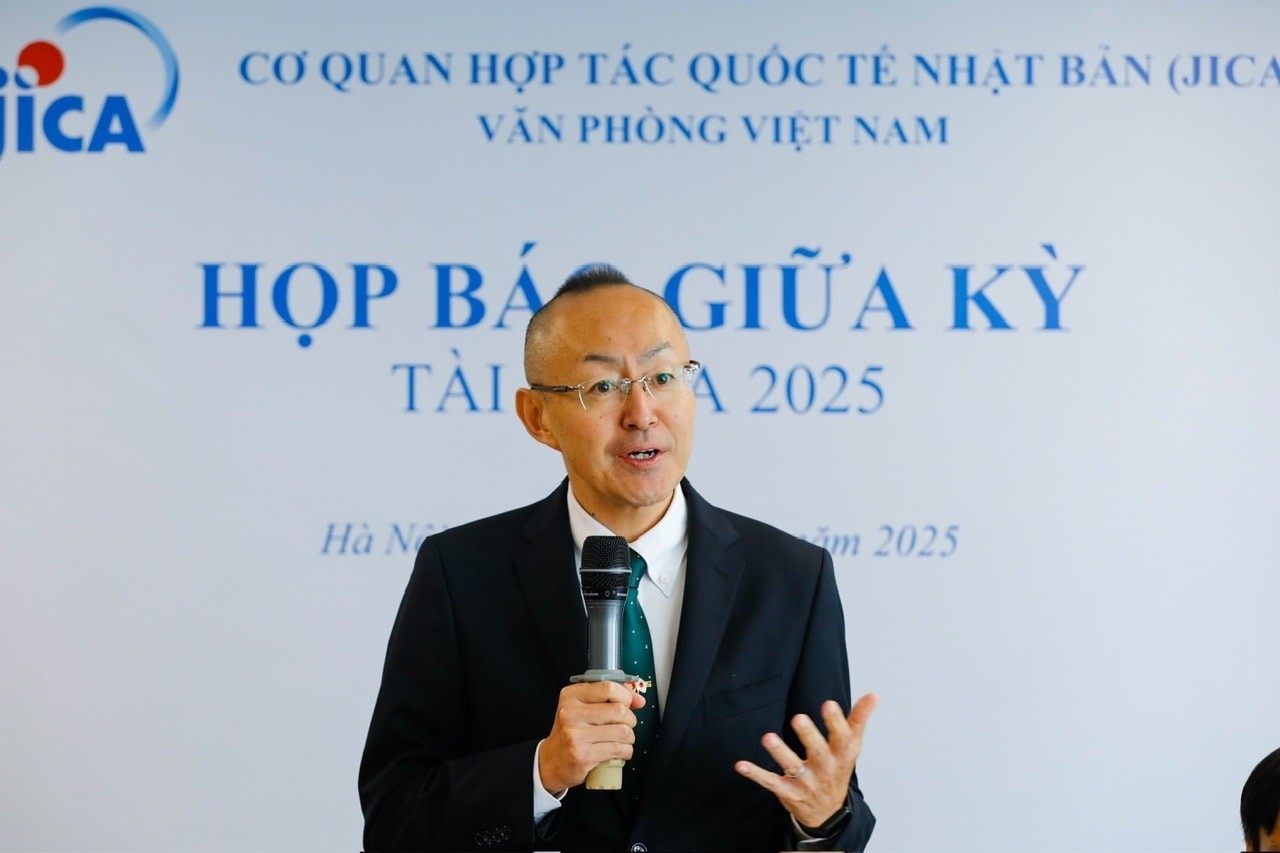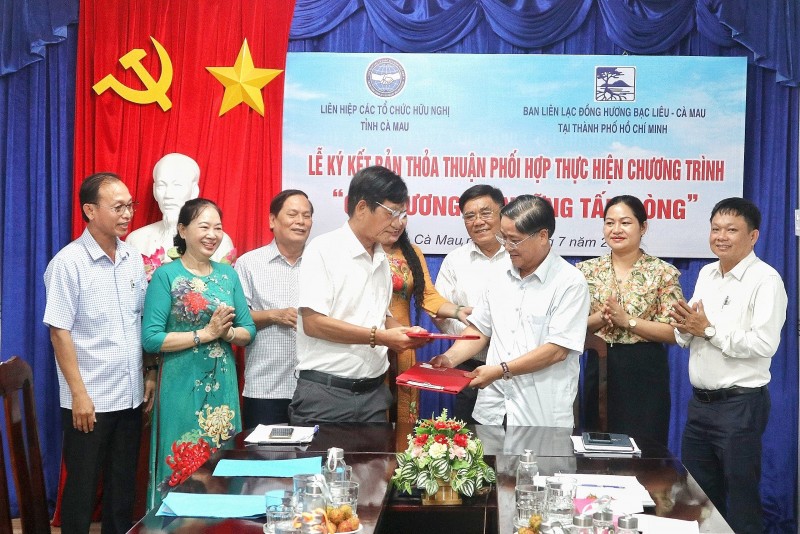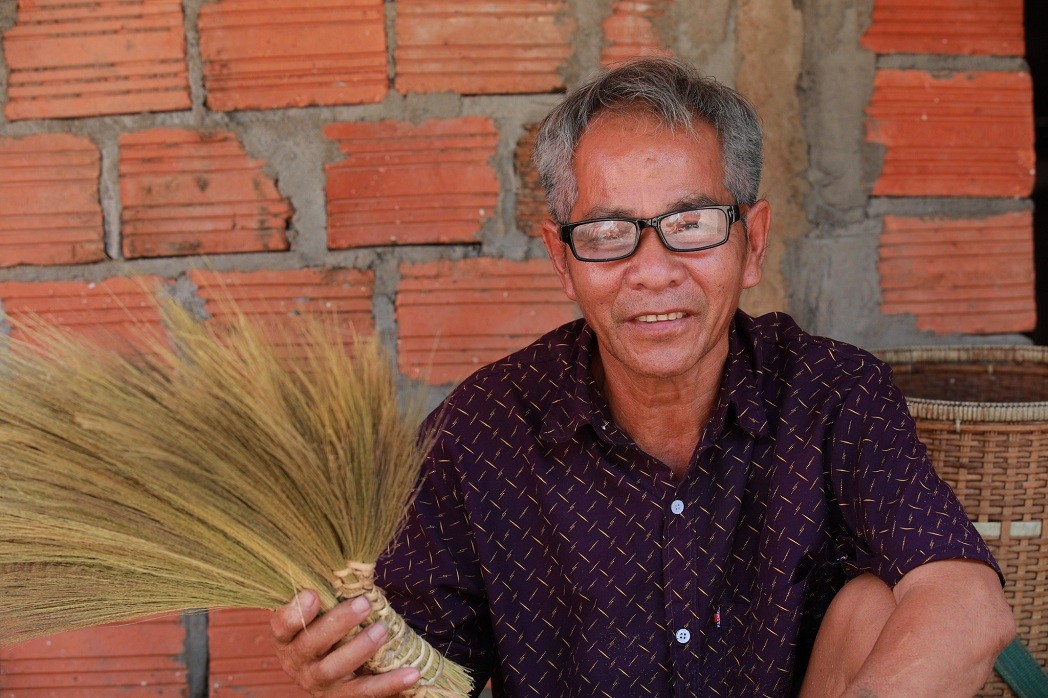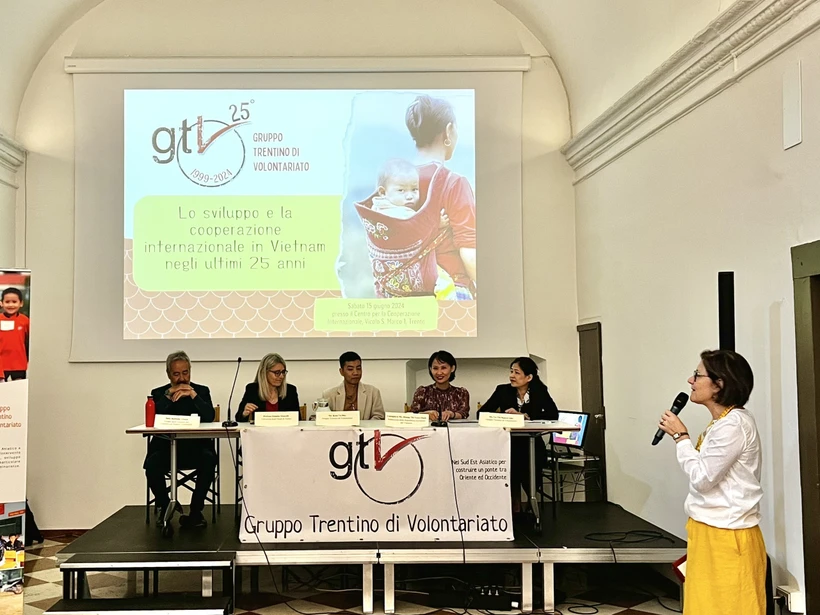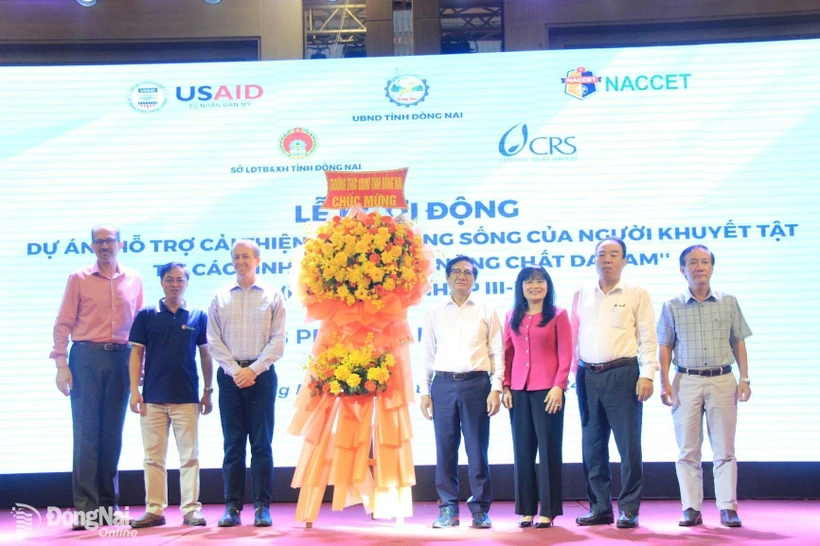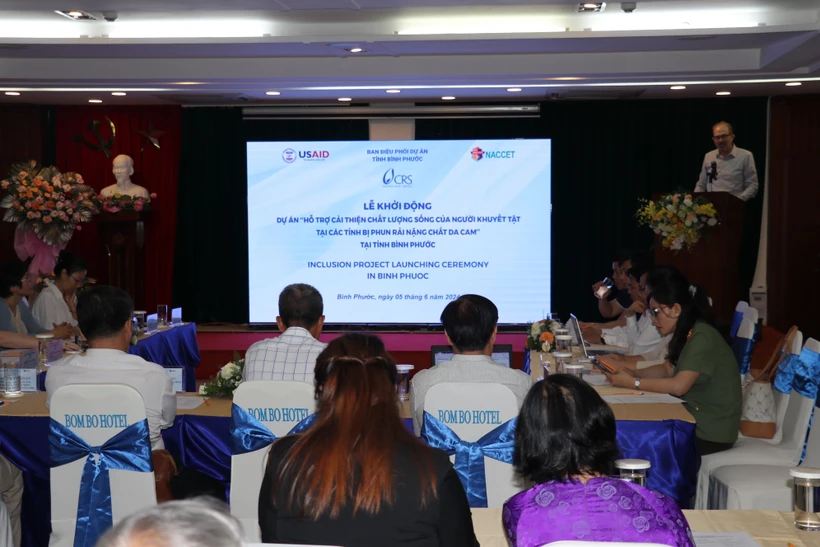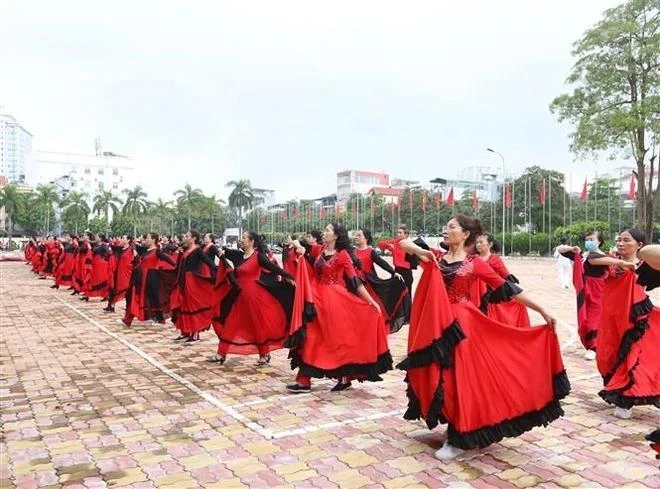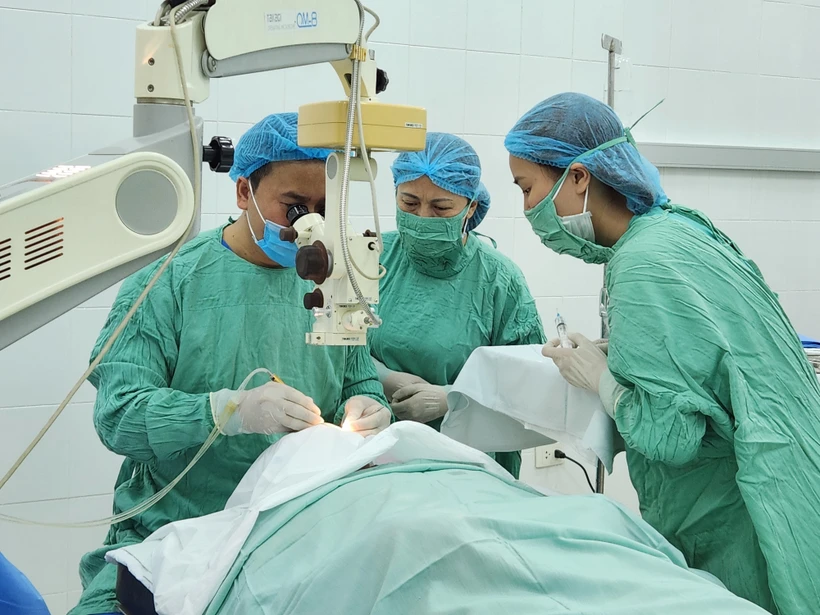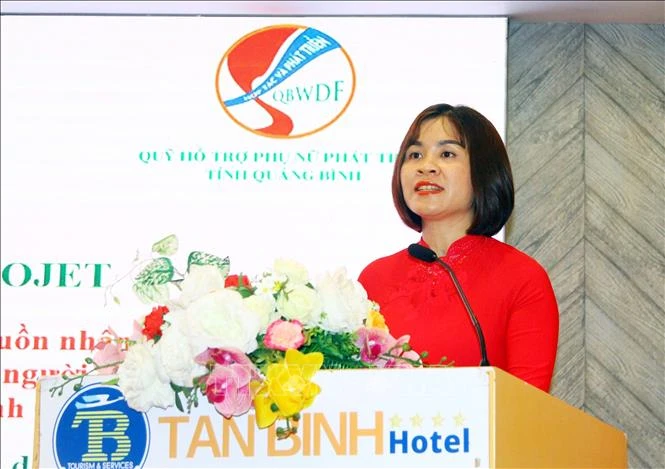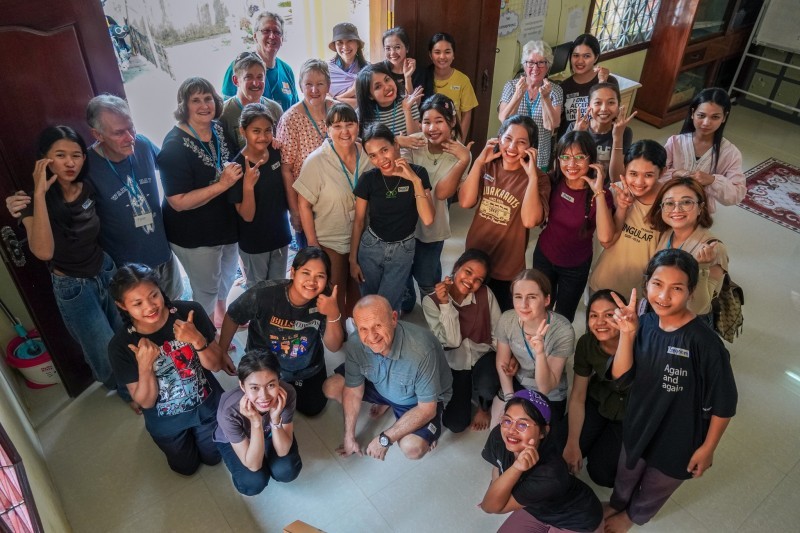The mine action for the Republic of Korea (RoK) - Viet Nam peace village project, which covers the central provinces of Thua Thien-Hue, Quang Ngai and Binh Dinh, was launched in Binh Dinh on May 23, VNA reported.
Jointly implemented by the Viet Nam National Mine Action Centre (VNMAC), the Korea International Cooperation Agency (KOICA) and the UN Development Programme, the project will run until December 2026 at a total cost of over USD 14 million from non-refundable aid provided by the RoK Government.
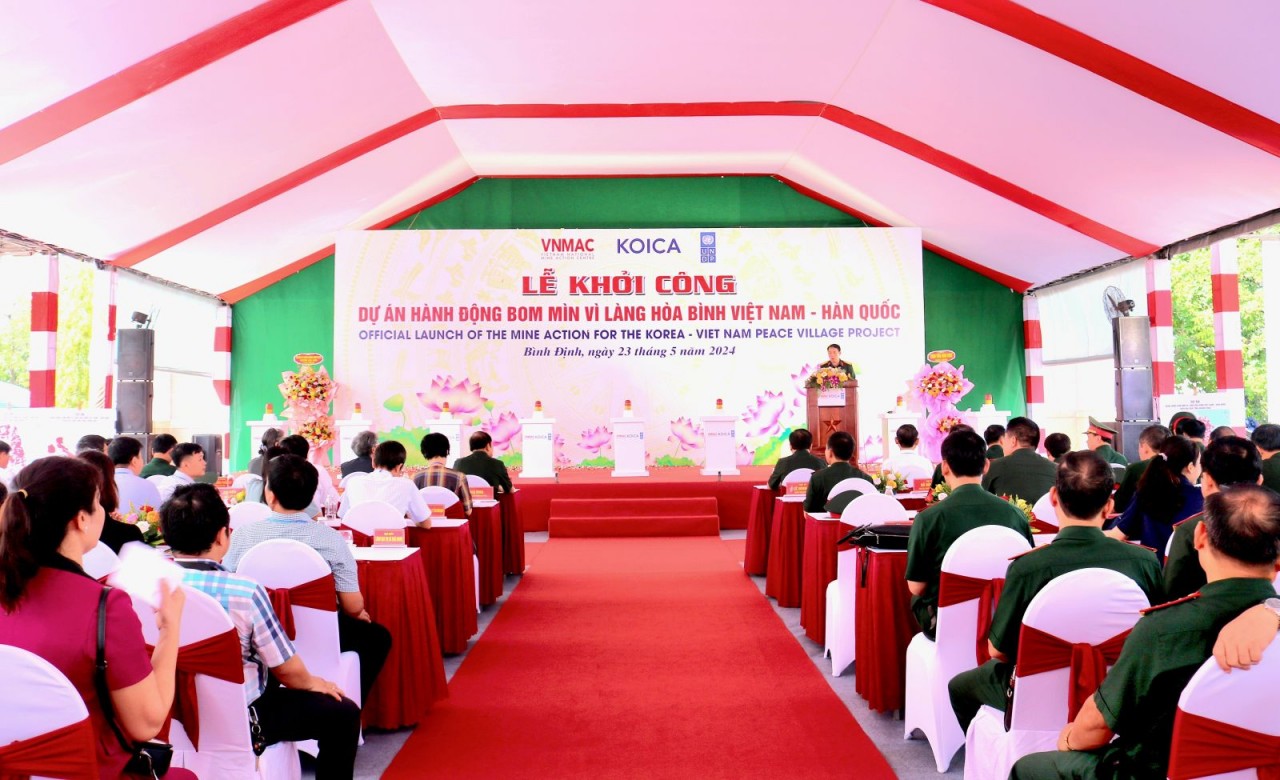 |
| At the launching ceremony. Photo: VNMAC |
KVPVP is the follow-up phase of the successful Korea – Viet Nam Mine Action Project (KVMAP), which achieved remarkable results from 2018 to 2021 in Survey and Clearance, Victim Assistance, Explosive Ordnance (EO) Risk Education, Information Management and Capacity Building.
During KVMAP, approximately 17,000 hectares were surveyed, and 10,000 hectares were cleared; 450,000 people in Quang Binh and Binh Dinh provinces received risk education; over 1,000 EO survivors had health screenings; and 174 survivors, including children, received prosthetic devices and surgical operations.
It aims to cope with consequences of bombs and mines left by the war, protect civilians, promote socio-economic development of the localities and serve the building of rural communities of harmony, safety, prosperity and climate change resilience.
The project will focus on conducting technical surveys on 15,000 hectares of land and clear about 6,000 hectares of unexploded ordnance (UXO) and explosive-contaminated areas in the three provinces.
It will support UXO victims and persons with disabilities in the covered localities, while enhancing the capacity of officials at all levels in the field, and helping complete mechanisms, policies and social solutions to assist UXO victims and the disabled.
Addressing the launching ceremony, Vice Chairman of the People’s Committee of Binh Dinh Nguyen Tu Cong Hoang said that 250,000 hectares, or 40% of the province’s natural area are polluted by post-war bombs, mines and UXO.
Thanks to a cooperation project between Viet Nam and the RoK that was implemented in 2018-2021, more than 4,200 hectares of UXO-contaminated land of Binh Dinh were cleared, and 69,000 UXOs of all kinds were collected and deactivated. Currently, more than 26,800 people affected by UXO in the province are in need of support, Hoang said.
 |
| Implemented in 3 provinces of Thua Thien Hue, Quang Ngai, and Binh Dinh, the main goals of the project include Survey and clearance of contaminated area; Enhancing the capacity of mine action operators in Viet Nam; EO risk education; Victims Assistance; and Building climate-resilient infrastructure. |
Lee Byung Hwa, KOICA Viet Nam Country Director, stated KVPVP is KOICA’s largest project in the field of mine action and aims to build a “Peace Village” by adopting an integrated approach to demining and linking it to sustainable economic and social development.
He believes that mine action is not only important in terms of “securing safety” by itself but is even more meaningful when the cleared land is utilized for local development.
Sen. Lieut. Gen. Hoang Xuan Chien, Deputy Minister of National Defence, said that once completed, the project will help people in areas contaminated with bombs, mines and explosives in the three provinces to be safe during their production and daily life.
Along with the completion of three component projects implemented by the People's Committees of the three provinces, many communities and bomb and mine victims living in Hoa Binh (peace) villages will receive support in human and livelihood development, thus making an important contribution to the socio-economic development of the localities.
He asked VNMAC to continue coordinating closely with KOICA and UNDP with the highest sense of responsibility, ensuring the effective implementation of all project activities as scheduled with the utmost safety.
Earlier, on May 22, UNDP together with KOICA, VNMAC, and the People’s Committee of Binh Dinh provinces, handed over a climate-resilient commune health station to the people of Phuoc Thanh commune, Tuy Phuoc district, Binh Dinh province.
This is one of 50 health stations that the project aims to support in Thua Thien–Hue, Quang Ngai, and Binh Dinh provinces.
By incorporating climate resilience features, such as rooftop solar panels, telehealth function room, and vaccine transportation boxes, these health stations will be better equipped to continue delivering critical health services amidst extreme weather events. In addition, 400 flood and storm-resilient houses will be built for local people in these three provinces, bringing more stability to their daily lives.
Source: Vietnamtimes

